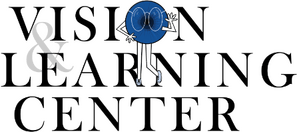Offering ADHD Support in NJ and Surrounding States
Free 15-Minute Consults | 1-on-1 Care | Free Kids' Visual Screenings
Free 15-Minute Consults
1-on-1 Care
Free Kids' Visual Screenings
According to the American Academy of Optometry, children with vision problems are more than twice as likely to be diagnosed with attention-deficit disorders. Aside from these accurate diagnoses, convergence insufficiency, a vision disorder, is also commonly misdiagnosed as ADHD. The typical vision testing performed at pediatricians' offices and by school nurses will not always detect convergence insufficiency or similar conditions -- a child can show 20/20 vision and still have eye-tracking or convergence issues that mimic the learning difficulties of ADHD.
At Vision Learning Center, we provide ADHD support in NJ for children diagnosed with ADD/ADHD. Our comprehensive vision testing evaluates binocular vision and visual perception, in addition to the close and far vision of the traditional Snellen eye test, to locate these treatable visual issues before they interfere with your child's development and learning.
What Is Convergence Insufficiency?
Convergence insufficiency is an issue with the eyes' tracking motions and the brain's processing and combination of the images from each eye. In normal vision, when reading or focusing on another close object, the pupils dilate, the lenses change in shape, and both eyeballs converge toward the focal point. With convergence insufficiency, one or more of these steps does not happen reflexively, resulting in one eye "drifting" and not responding properly to visual stimuli.
Symptoms of convergence insufficiency may include:
- Headache
- Double vision
- Difficulty concentrating on reading material
- Losing your place when reading
- Blurry close vision
How Does Convergence Insufficiency Relate To ADHD?
There are a few complicating factors here -- vision problems can exacerbate learning difficulties such as attention deficit disorders, but convergence insufficiency itself can also present similar symptoms, without an underlying learning disorder.
Both ADD/ADHD and convergence insufficiency may put a burden on your child's executive function, leading to difficulties in decision making, impulsive behavior, and deficient short-term memory. Regardless of which is the case for your child, seeking visual ADHD support in DE is still likely to help with behavioral symptoms and academic performance.
What Does Vision Treatment For ADHD Support in NJ and Surrounding States Involve?
Our visual therapy is personalized for every child's specific needs. For ADHD support in NJ and PA, we often use Vivid Vision, a technological solution designed for binocular vision issues including convergence insufficiency. We also use prisms, filters, and other devices to help your child train their eyeballs with easy, repeatable vision exercises. Most of these conditions are not treated with glasses or contacts -- treatment is based on teaching your child's brain to take better control of their eyes through short-term adaptive devices and game-like exercises to boost engagement.
Many patients participating in ADHD support in DE show a notable improvement in attention, reading, and academics as soon as a few weeks after starting vision therapy. Improving your child's visual acuity and perception will help with spelling, reading comprehension, and developing a passion for the written word, leading to long-term improvements in academic performance.

Share On: